Dear WesleyNexus Colleagues,
Edge (www.edge.org) was launched in 1996 as a platform for speculative ideas authored by intellectuals interested in stretching the understanding of our world. “The ideas presented on Edge are speculative; they represent the frontiers of knowledge in the areas of evolutionary biology, genetics, computer science, neurophysiology, psychology, and physics. Some of the fundamental questions posed are: Where did the universe come from? Where did life come from? Where did the mind come from? Emerging out of the third culture is a new natural philosophy, founded on the realization of the import of complexity, of evolution. Very complex systems, whether organisms, brains, the biosphere, or the universe itself, were not constructed by design; all have evolved.
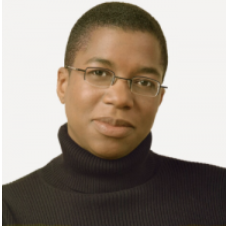
There is a new set of metaphors to describe ourselves, our minds, the universe, and all of the things we know in it, and it is the intellectuals with these new ideas and images, those scientists and others doing things and writing their own books, who drive our times.”
In this issue of the WesleyNexus Newsletter, we will highlight a number of articles from Edge.org. While not explicitly theological, these articles provide food for thought and serious reflection on what our theological response should be. Ainissa Ramirez, author of The Alchemy of Us: How Humans and Matter Transformed One Another, wrote an article of particular significance as she describes the challenge of providing scientific understanding and critical thinking skills for the non-professional that move science understanding beyond entertainment towards greater insight into our amazing, complex world. As she sees it, science needs to be seen as more than a series of problems and solutions, but as stories that invite one in and help shape the way we see things. (WesleyNexus notes that theology has the same challenge. It needs to be more than a series of doctrines or practices, but engages one to see themselves in a story.) As Ramirez describes her task:
“What I noticed over the years is that people were starting to see science as entertainment and not as a tool or a lens to understand the world. The thing that scientists do is ask great questions. We need people who can interrogate and probe the world so they can develop their muscle of being critical thinkers. I saw that missing. I thought that I was becoming part of the problem of just showing science’s entertainment with great demonstrations. I was hooking them, but I wasn’t doing the next step, which is to say, ‘This is the enterprise of science; it’s a great way to understand the world, and with it you can shape the world.’
I’ve spent a lot of my energy recently thinking about how to get science to resonate with people, to make people who usually feel excluded feel included. I thought one of the best ways to do that was with stories. I like to tell a lot of stories and share the impact of materials. The reason I’ve taken this approach is that there are many books about technology and science that profile information and lather people with lots of details. But what I’ve learned in my journey is that stories are stickier. They allow people to be part of the journey, and then you just pepper in the science. You don’t have to wallop people with science.”
AINISSA RAMIREZ is a materials scientist and science communicator. Her article, “Interrogating and Shaping the World Through Science”, can be found here. http://www.edge.org/conversation/ainissa_ramirez-interrogating-and-shaping-the-world-through-science
As always, our thanks go out to our generous contributors. We will continue to share this newsletter in the coming months and encourage you to share articles and insights that will help us all weather these difficult times.
Rick, Jennifer, Maynard, and the rest of the WesleyNexus team.
******************************************************************
Kent & Lois Weaver Awarded “God’s Foolish One” Laity Award by the Methodist Federation for Social Action, Baltimore-Washington Conference Chapter
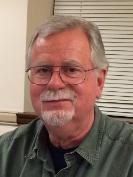
The MFSA Chapter in the Baltimore-Washington Annual Conference held its annual meeting on September 8th in a virtual format via ZOOM, with some 45 persons attending. It is the occasion each year, among other agenda items, when the chapter makes its annual “God’s Foolish One” award, recognizing those who have made significant commitments and actions in a broad scenario of progressive social goals. The award is rooted in I Corinthians 1: 9-13 text where Paul says “We are fools for Christ.” The 2020 clergy award went to Bishop Susan Morrison (retired) who provided twelve years of progressive leadership to our Church and was arrested at General Conference on three different occasions when witnessing for LGBTQI+ equal rights. The laity award went to Lois and Kent Weaver, Lois for her leadership on the issue of gun violence, and Kent for his decades long service in homeless ministries in Washington, D.C., and his nine years of service on the Board of WesleyNexus.
WesleyNexus is participating in the establishment of an annual Science & Religion Lectureship in Kent’s name at the National United Methodist Church. Anyone in our network is encouraged to send to us a donation of any size that can be added to the fund that will support the lecture series, to begin in 2021. WesleyNexus is a 501(c)(3) charitable, educational organization, and we will acknowledge all gifts from individuals for tax-reporting purposes. Thanks in advance for your support. You can use the donate button on our web page or send a check to WesleyNexus, with a designation for the lectureship, to:
WesleyNexus, Inc
24500 Fossen Drive
Damascus, MD 20872-2195
******************************************************************
IRAS September Science Webinar – September 17 – 5:00 Eastern time
Navigating Crises and Bridging Cultural Divides with Citizen Science
Grace Wolf-Chase, Astronomer
Please join IRAS for the September session of our new monthly webinar series, Science, Religion, and Society. On September 17, 2020 IRAS will host another live session, featuring Grace Wolf-Chase, which will explore a process of understanding scientific discovery through citizen participation.
Initial Respondent: Dr. Constance Bertka, Co-Chair, Broader Social Impacts Committee, Smithsonian’s National Museum of Natural History’s Human Origins Program
September 17, 2020 at 4:00 pm Central time, 5:00 Eastern time
Presentation Overview:
Promoting better understanding and cooperation across our divided society is arguably the most urgent issue of the 21st century. We learn about others by participating with them. Dr. Wolf-Chase directs a project that engages people in conversations about our experiences as scientists, and empowers them to claim ownership in the process of exploration and discovery through citizen science. Citizen science enables research that would be intractable without the help of many volunteers. In turn, it welcomes people of all ages and from all walks of life “into the scientist’s land,” enabling them to participate in the process of exploration and discovery. In this session, she will include a demonstration of how participants can contribute to a wide array of internet-based research projects, and facilitate discussion among participants on developing strategies to engage their religious communities in meaningful ways within their respective traditions.
Presenter Background:
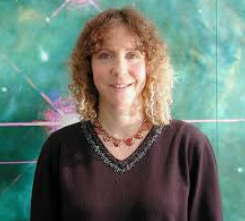
Dr. Grace Wolf-Chase (A.B. Physics, Cornell University; Ph.D. Astronomy, University of Arizona) is a Senior Scientist and Senior Education & Communication Specialist at the Planetary Science Institute. In 1994, she was awarded a National Research Council postdoctoral fellowship to pursue star formation studies at NASA Ames Research Center. She is an Affiliated Member of the Zygon Center for Religion and Science; and Vice President of the Center for Advanced Study in Religion and Science (CASIRAS). She spent 22 years integrating astronomical research with public education at the Adler Planetarium, has published dozens of scientific papers, contributed to several books, and currently leads an initiative to engage faith-based communities in research experiences via the Zooniverse citizen science platform.
The IRAS webinar is FREE but registration is required:
https://us02web.zoom.us/webinar/register/WN_qx3U9mXpQSCdrmw6Esre-g
Previous IRAS Seminars available on-line at www.iras.org :
August 18, 2020 – The Unifying Potential of a God that is Real in the Scientific Universe, with Nancy Ellen Abrams.
July 16, 2020 – Theology & Covid-19: Etiological and teleological models at the nexus with science, with Dr. Arvin Gouw
June 30, 2020 – Will Modern Civilization be the Death of Us? Part 1, with Dr. William Rees
June 29, 2020 – Will Modern Civilization be the Death of Us? Envisioning Tomorrow’s Earth. with Ruben Nelson.
******************************************************************
How Humans Make the Earth Their Home by Laurence C. Smith
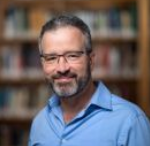
Beginning in 2012, and for many summers ever since, my team and I have been helicoptering onto the Greenland ice sheet, in this fantastical melt zone. We use helicopters to string cableways over the top of rushing super glacial rivers so that we can hang this river discharge measurement technology called Acoustic Doppler Current Profiler (ADCP). We operate around the clock to collect measurements of river discharge every hour, for up to a week in duration. We have collected the world’s first meltwater runoff measurements on top of the ice sheet. What we then do is simultaneously use drones and satellites to map out the upstream contributing watershed area flowing to that point where we are collecting the discharge measurements. When we know the contributing watershed area and we have the flow measurements at the bottom of the watershed, we then have a completely independent field dataset from which we can test the ability of climate models to simulate meltwater runoff from the Greenland ice sheet. And it’s those models that are being used to predict the future. It’s those models that are being used to estimate projected ranges of sea level rise in IPCC reports and so forth.
LAURENCE C. SMITH is the John Atwater and Diana Nelson University Professor of Environmental Studies and Professor of Earth, Environmental and Planetary Sciences at Brown University. He is the author, most recently, of Rivers of Power.
http://www.edge.org/conversation/laurence_c_smith-how-humans-make-the-earth-their-home
**********************************************
Life In the Time of COVID By Jared Diamond
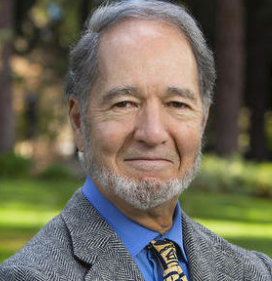
My best-case scenario for what’s going on now is—assuming that within the next half year, we do deal successfully with the COVID crisis—that it will become a model for people all around the world recognizing common problems, rallying together to deal with a common problem. My best-case scenario is that, having defeated COVID, we will go on to attempt to defeat and succeed in defeating climate change. For that reason, I see a potential silver lining, and that’s my best-case scenario for what’s going on now.
Worst-case scenario is that countries try to deal one by one. There’s already talk of a race to produce vaccines, where a country that has the vaccine will use the vaccine for itself in order to gain advantage rather than spreading it around the world.
JARED DIAMOND is a professor of geography at the University of California, Los Angeles. He is the author, most recently, of Upheaval: Turning Points for Nations in Crisis.
http://www.edge.org/conversation/jared_diamond-best-case-and-worst-case-scenarios
**********************************************
Women Scientists Have the Evidence About Sexism Centuries of bias have impeded the advance of human knowledge. by Rita Colwell (The Atlantic, August 30, 2020)
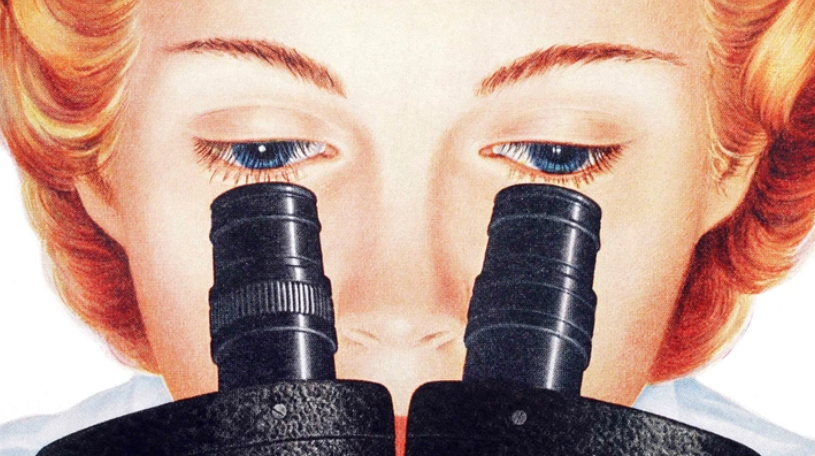
In the war against the coronavirus, leading women scientists are among the generals. For instance, Kimberly Prather of UC San Diego, has been a leader in establishing the role that airborne transmission plays in spreading the virus. The renowned UC Berkeley researcher Jennifer Doudna—a pioneer in gene-editing technology—threw herself into efforts to improve testing and accelerate the search for a vaccine. Countless other women, including epidemiologists, doctors, nurses, and lab technicians, have devoted themselves to crushing COVID-19. That women in science and medicine should figure so prominently during the pandemic only stands to reason. Why go into battle with just half an army?
**********************************************
Here’s how global warming will change your town’s weather by 2080
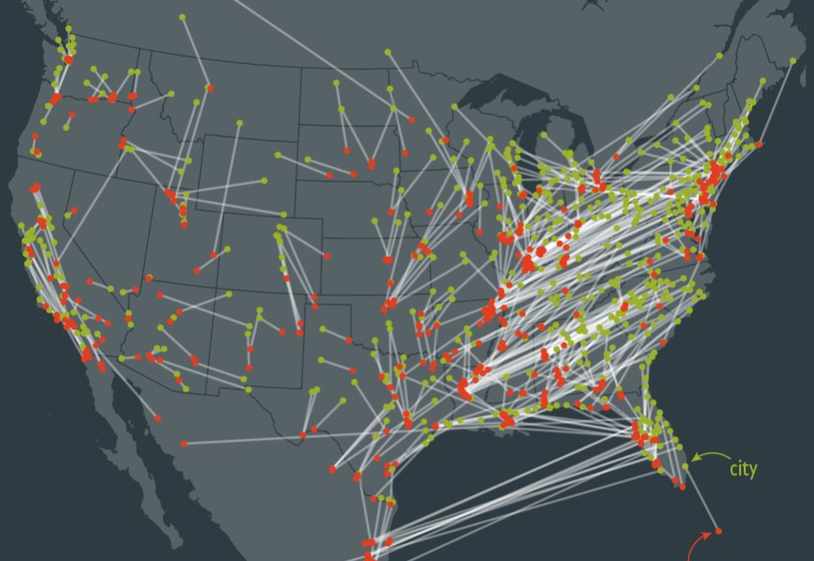
A clever study finds modern analogs for what our cities will feel like in 2080 By Sara Chodosh, Popular Science, February 12, 2019
